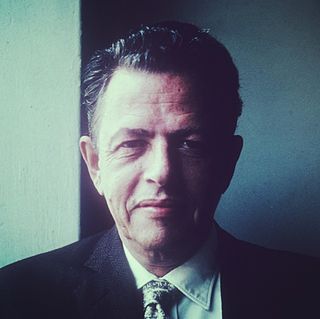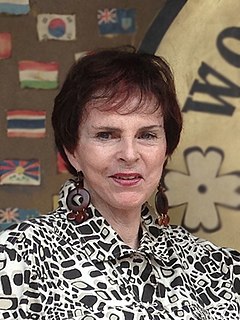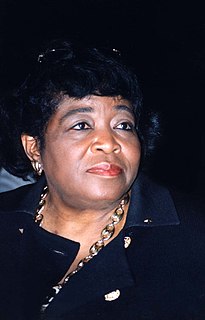A Quote by Robert Ardrey
Human war has been the most successful of our cultural traditions.
Quote Topics
Related Quotes
Cultural speciation had been crippling to human moral and spiritual growth. It had hindered freedom of thought, limited our thinking, imprisoned us in the cultures into which we had been born. . . . These cultural mind prisons. . . . Cultural speciation was clearly a barrier to world peace. So long as we continued to attach more importance to our own narrow group membership than to the ‘global village’ we would propagate prejudice and ignorance.
War is a great destroyer. And human history has arrived at a pivotal moment. We can choose a path built on cooperation, where our caring and sharing side uplifts us, or we can continue to embrace a worldview where domination using violence imprisons us in cycles of killing and destruction. I'm a biologist, and war is not genetically fixed. War is a cultural invention. It's time to end this abomination, and this World Beyond War movement is uniquely focused on unifying the human community to create one of the biggest revolutions in history. I'm in. Join us!
The steep ride up the and down the energy curve is the most abnormal thing that has ever happened in human history. Most of human history is a no-growth situation. Our culture is built on growth and that phase of human history is almost over and we are not prepared for it. Our biggest problem is not the end of our resources. That will be gradual. Our biggest problem is a cultural problem. We don't know how to cope with it.
Most historians accept that Egypt was a cradle of civilization, and that many cultural idioms and traditions come from there. What has yet to be understood, however, is the manner in which Egypt inherited its cultural elements from the lands of the North-West. This fact is not known today because of the threat it poses to Rome and London, the Vatican and Crown, and to all those who have profited from the suppression of knowledge.
Liberty is not about class war, income war, race war, national war, a war between the sexes, or any other conflict apart from the core conflict between individuals and those who would seek power and control over the human spirit. Liberty is the dream that we can all work together, in ways of our choosing and of our own human volition, to realize a better life.






































